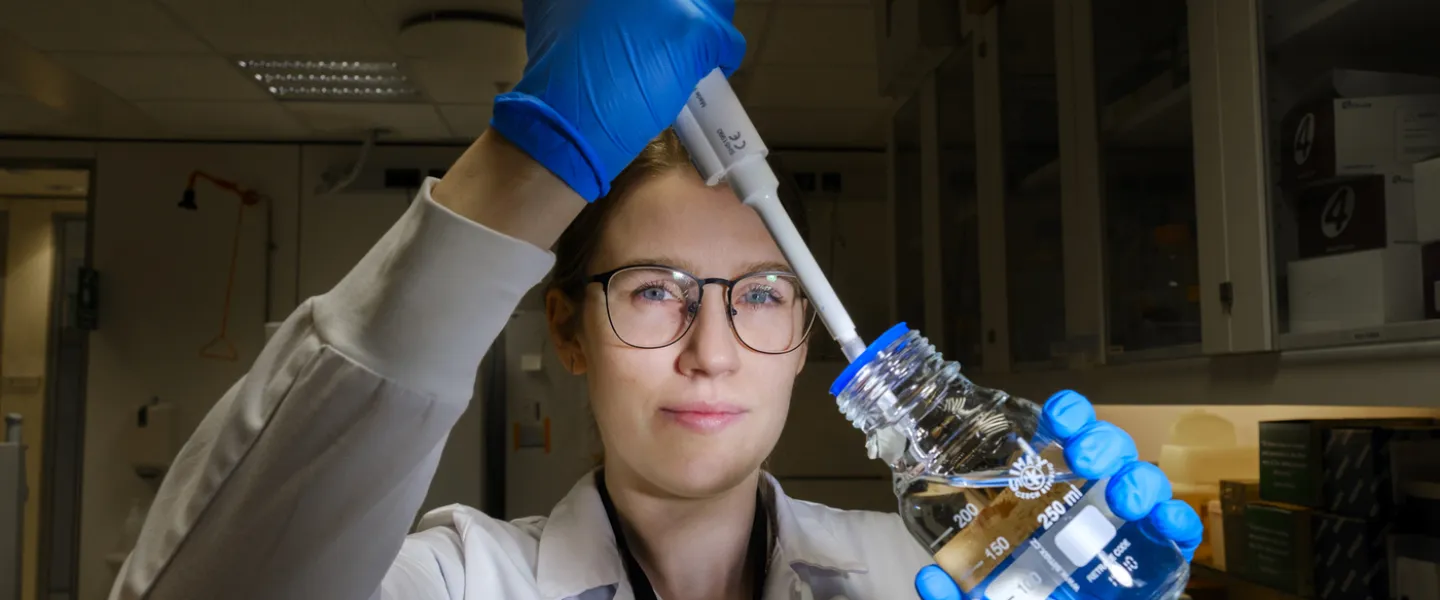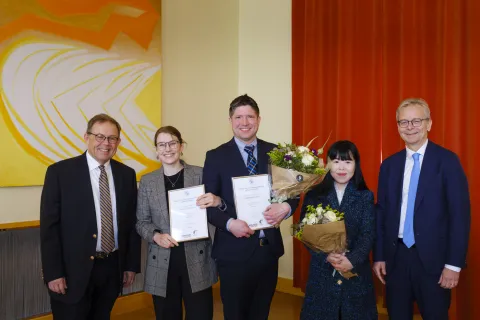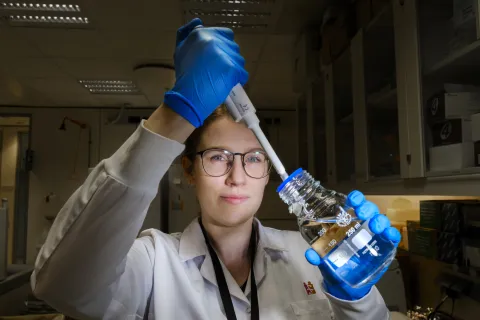
"In medicine, cooling therapy is used as a neuroprotective treatment for serious conditions, e.g. following birth asphyxia or cardiac arrest. Cooling seems to protect neurons from damage that would otherwise have occurred after restricted blood flow, but the process behind this effect is poorly understood," explains Salvör Rafnsdóttir, medical doctor and PhD student. She is currently working on a study investigating which of the body's mechanisms and genes are activated when cells are cooled to 32°C. Salvör and her team have also identified a promising drug that seems to activate the body's cooling response without actually cooling. This discovery recently earned the team first prize in the 2023 University of Iceland Science and Innovation Competition.
Salvör completed her medical degree at the University of Iceland. The research experience she acquired as a student and her interest in disease progression and genetics led her to the University of Iceland Biomedical Centre, home to basic research into a wide range of diseases and processes in the body. She is now working towards her PhD at the laboratory of Hans Tómas Björnsson, professor at the Faculty of Medicine.
"I am extremely interested in linking basic research, including animal research and cell research, with medical innovations. This area of medicine is known as translational medicine. The goal of translational medicine is to convert research findings into benefits for patients as quickly as possible. Scientists research diseases or clinical conditions in cells or animals, hoping to identify new mechanisms that can be targeted or drugs that can activate known mechanisms or genes. These discoveries can push the boundaries of existing treatments or find new drugs, which means improved treatment for patients," explains Salvör, who was introduced to basic research early in her medical degree.






